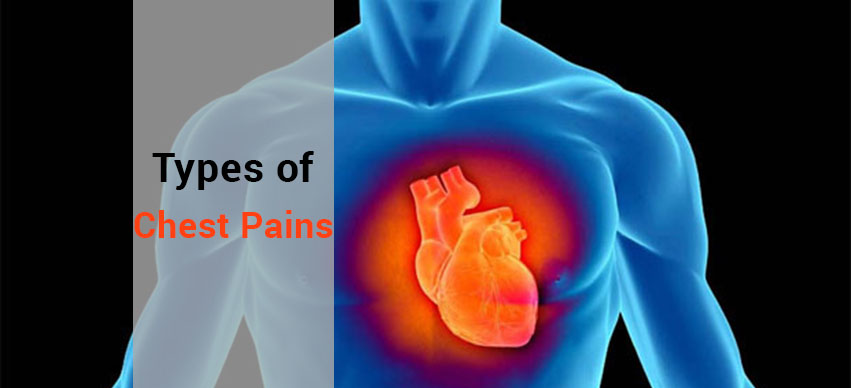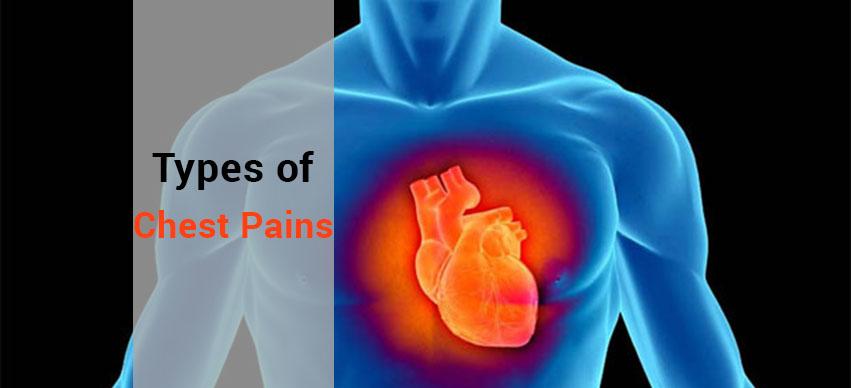Nanoparticle Therapy – An Emerging Cancer Treatment
5 Min Read


Chest pain is an alarming symptom that causes lot of anxiety and worry in people. From the Doctor's point of view, chest pain sets of a lot of alarms. Enter into the ER complaining of chest pain and the Doctor will rush you to the bed, strap an oxygen mask on you and order and ECG. While the ECG is being taken, he will draw a blood sample to test for Myocardial infarction.
Though the above illustration may scare you, it's intention is not to scare but to educate on the seriousness with which chest pain is taken. However, in this article we aim to educate you on chest pain and how you can help when you or someone near you feels pain in the chest.
Chest pain can be defined as pain that occurs anywhere between the neck and the upper abdomen. Chest pain can be of any type or nature based on the cause and what makes it more complex is that 4% of non-cardiac type chest pain has a cardiac cause. For example, if you are getting pain that seems to be due to acidity (burning epigastric pain right at the sternum), you have a 1 in 25 chance of it being a heart related pain. That is why chest pain is never ignored.
Let us explore Chest pain deeper. Here are the 5 possible organ systems chest pain can come from. Later, we will go in detail of each system picking up a few examples:
Though cardiac related chest pain is usually the least likely cause of chest pain, it is also the most dangerous and every Doctor would like to rule it out. A simple ECG will easily rule out the heart and you should always aim to get an ECG done. Here are a few causes of Cardiac Chest Pain:
Heart attack - A heart attack happens when there is sufficient blockage of the blood supply to the heart causing pain in the heart. The reduced blood supply means the heart is not getting enough oxygen and the heart muscle starts to die. The heart will then not be able to pump as effectively and thus not supply blood to the heart causing a vicious cycle. This type of chest pain is mostly on the left side, radiates to the left jaw and left arm and feels like a constricting band around the chest.
You can treat this effectively by taking tablet Aspirin at a dose of 150 mg to counter the effect. Since, the block of the heart vessels is usually due to a clot, the Aspirin will break up the clot and allow some blood flow back to the heart. Aspirin should be given to the person on the way to the hospital and the person should be given a lot of space so his/her breathing is not hampered.
Angina - This is a type of chest pain that occurs due to narrowing of the blood vessels due to cholesterol deposits. There is a reduction in blood flow which causes pain. Relief is obtained by taking GTN tablets which are to be used by prescription only. Please see a Doctor if you get chest pain that comes suddenly and goes away after some rest.
Pericarditis or valvular disease - In this type of chest pain, the person gets cardiac chest pain because of the inflammatory process involving the heart muscles or a degenerative process of the valves of the heart. The heart is made of 4 chambers which are guarded by valves. Damage to the chamber or the valves can result in chest pain but this will not be as severe as in a heart attack. If you are getting rumbling sounds from your chest, it would be good to see a Doctor to get a ECHO done.
Lung related chest pain here refers to the lungs and the adjacent organs. These are the lungs, pleura (lining of the lungs) and the bronchi and their tributaries(the wind pipe and branches). All these structures when inflamed can cause pain in the chest. Usually, the type of chest pain will increase of decrease with inspiration.
Asthma - Asthma is a disorder of a hyper-responsive airway which causes a feeling of breathlessness in the body. The breathlessness occurs because allergens will stimulate the bronchus and cause its narrowing. There is also an increase in the secretion of fluids in the bronchus. Treatment is to start the person on bronchodilators and the person is maintained on steroids to prevent attacks.
Bronchitis - Bronchitis is the inflammation of the bronchus. Sometimes, bronchitis occurs due to a bacterial infection in which case copious amounts of sputum would be produced and the person has difficulty breathing with a lot of cough. Treatment of bronchitis is usually by starting the person on a course of antibiotics and telling them to avoid smoking or such activities.
Pleuritis - Pleuritis is inflammation of the pleura and is usually pain increases with respiration and is felt on the sides of the chest. Usually, a rubbing sound is heard when the patient is asked to breathe in and out deeply. This occurs because of the friction between the 2 surfaces. Pleuritis is treated by an antibiotic cover and needs a Doctor to observe the treatment.
Pneumonia - Pneumonia is a infection of the lung caused by a bacteria, virus or other type of microbe. Pneumonia is usually serious and may need intravenous therapy to achieve a cure.
Though many types of gastrointestinal problems can cause chest pain, they can be classified into a few main ones or types. Usually, any obstruction in the esophagus will cause chest pain. Along with this, diseases in the stomach and some of the upper intestinal organs can cause chest pain.
Peptic ulcers - This is commonly known as acidity. Peptic ulcers present as burning epigastric pain and if it occurs for more than 21 days, then it is possible that the person has a H pylori infection. To counter acidity, a person can try antacid therapy with OTC agents like Pepto-Bismol. If cure is not achieved in 3 days, the person should see a Doctor to get evaluated and reach a diagnosis.
GERD - Gastroesophageal reflux disease is a disease in which there is reflux of acid into the esophagus. The reflux causes a burning type of epigastric chest pain. Treatment is usually to avoid coffee, hot and spicy foods and antacids like Pepto-Bismol. This will usually get the person cured in a few days. In some cases, there is a mechanical cause as well which can cause pain. Please see a Doctor if you do not feel better after 3 days.
Mechanical obstruction of the Esophagus - This type of chest pain occurs when there is some esophageal dysmotility or a obstruction due to some cause. If you are getting repeated belching, difficulty in swallowing food and are vomiting undigested food, then you should get evaluated by seeing a Doctor.
These are chest pains related to injury or trauma to the chest. Usually, you will be able to tell if they are external as they will feel very close to the skin. Icing and massage will help to reduce the pain. If you start getting breathless, it may be beneficial to see a Doctor to get help.
In some people, anxiety or palpitations(being able to feel your heart beat) can cause chest pain. This is more likely to happen during events of stress such as exams or interviews. If the chest pain goes away soon after the stressor is over, then there is no need to worry. If the chest pain persists or recurs frequently, it may be a good idea to see your Doctor.
That sums up the causes of chest pain. The above list is however, non exhaustive and many far away organs sometimes present with chest pain in some people. Generally, please rush to the ER if you are having chest pain with the following: